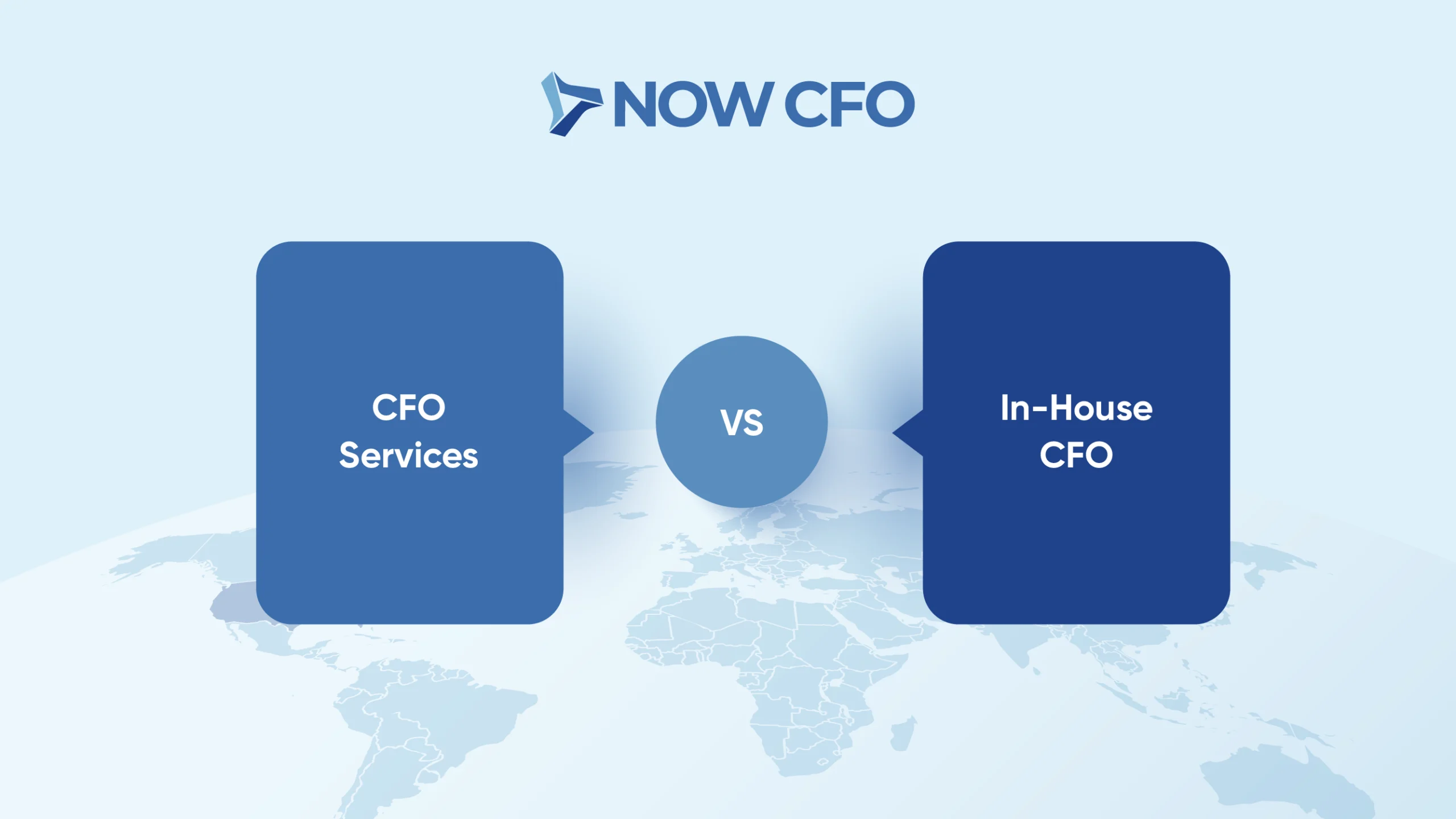
Two key roles often emerge as crucial players in the world of finance, bookkeepers and accountants. While these professions are frequently mentioned together, their responsibilities and the value they bring to a company are distinct.
Understanding the difference between a bookkeeper and an accountant can help business owners manage their finances. In this blog, we will explore the specific duties, skills, and contributions of bookkeepers and accountants, shedding light on how each role supports.
Overview of Bookkeeping Responsibilities
Bookkeepers are the meticulous record-keepers of the financial world. Their primary duty is to maintain an accurate and comprehensive log of all financial transactions. This involves recording every sale, purchase, receipt, and payment that a business makes.
Key Responsibilities of a Bookkeeper:
- Transaction Recording: Bookkeepers diligently document all financial transactions, ensuring every dollar is accounted for.
- Account Reconciliation: They regularly reconcile bank statements to ensure that the company’s financial records match the actual bank account balances.
- Payroll Processing: Handling payroll, including calculating wages, withholding taxes, and ensuring employees are paid on time.
- Invoicing and Receipts: Bookkeepers generate and send invoices to clients and record payments received, keeping track of accounts receivable.
- Expense Tracking: They monitor and record business expenses, ensuring they are properly categorized and documented for accurate reporting.
Bookkeepers typically use specialized accounting software to streamline these tasks, making the process more efficient and less prone to human error. Programs like QuickBooks, Xero, and FreshBooks are commonly employed, providing real-time data and analytics that help in maintaining accurate records.
Why Bookkeeping Matters:
Accurate bookkeeping is the backbone of a business’s financial health. Without precise records, a company can quickly lose track of its financial standing, leading to cash flow problems, missed opportunities, and even legal issues. By maintaining up-to-date records, bookkeepers ensure that businesses can:
- Make Informed Decisions: Reliable financial data allows business owners to make strategic decisions based on current financial conditions.
- Ensure Compliance: Proper bookkeeping helps businesses stay compliant with tax regulations and avoid penalties.
- Track Performance: Regular financial records provide insights into business performance, highlighting areas of strength and opportunities for improvement.
Overview of Accounting Responsibilities
Accountants, often seen as the strategic navigators of the financial landscape, delve into the complexities of financial data to provide insights and guidance for business growth. While bookkeepers focus on the day-to-day recording of transactions, accountants interpret and analyze this data to help businesses make informed decisions.
Key Responsibilities of an Accountant:
- Financial Reporting: Accountants prepare comprehensive financial statements, including balance sheets, income statements, and cash flow statements. These documents provide a snapshot of the company’s financial health and performance over a specific period.
- Financial Analysis: They analyze financial data to identify trends, variances, and areas of concern. This involves looking at key metrics like profitability, liquidity, and solvency to assess the business’s financial stability and potential for growth.
- Budgeting and Forecasting: Accountants play a crucial role in the budgeting process. They develop financial forecasts based on historical data, market trends, and business goals, helping companies plan for future expenditures and revenue.
- Tax Preparation and Compliance: Ensuring that a business complies with tax laws and regulations is a critical function of accountants. They prepare tax returns, identify potential tax savings, and ensure timely payments to avoid penalties.
- Audit and Assurance: Accountants conduct internal audits to ensure that financial records are accurate and comply with legal standards. They also prepare for external audits, providing necessary documentation and explanations to auditors.
- Advanced Tools and Techniques: Accountants often use advanced tools and techniques to perform their duties. Software such as SAP, Oracle Financials, and Microsoft Dynamics are commonly used for financial reporting and analysis. These tools help accountants manage large volumes of data efficiently and provide detailed insights that are crucial for strategic decision-making.
- Why Accounting Matters: The role of an accountant extends far beyond crunching numbers. Their work is integral to the strategic planning and long-term success of a business. Here’s why:
- Strategic Decision-Making: Accountants provide valuable insights that guide business strategy. Their analysis helps businesses decide where to allocate resources, how to reduce costs, and identify opportunities for growth.
- Financial Compliance: Accountants ensure that businesses adhere to financial regulations and standards, which is crucial for avoiding legal issues and maintaining a good reputation.
- Risk Management: Through their analysis and reporting, accountants identify potential financial risks and recommend measures to mitigate them, ensuring the company’s financial stability.
Key Skills for Each Role
Bookkeepers and accountants require distinct skill sets to perform their respective duties effectively. Understanding these skills can help businesses hire the right professionals and ensure their financial operations run smoothly.
Key Skills for Bookkeepers:
- Attention to Detail: Bookkeepers must be meticulous and detail-oriented to ensure that every financial transaction is accurately recorded. Even small errors can lead to significant issues in financial records.
- Proficiency in Accounting Software: Familiarity with accounting software such as QuickBooks, Xero, and FreshBooks is essential. These tools streamline the recording process and help maintain accurate records.
- Basic Accounting Knowledge: A strong understanding of basic accounting principles and practices is necessary. Bookkeepers should know how to categorize transactions correctly and maintain ledgers.
- Organizational Skills: Good organizational skills are crucial for managing numerous financial documents and transactions. Bookkeepers need to keep records well-organized and accessible.
- Communication Skills: Bookkeepers often work with other departments and need to communicate financial information clearly and concisely.
Key Skills for Accountants:
- Analytical Skills: Accountants must have strong analytical skills to interpret financial data and provide meaningful insights. They need to analyze trends, variances, and financial performance.
- Advanced Accounting Knowledge: A deep understanding of advanced accounting principles, financial regulations, and compliance standards is essential. This knowledge helps accountants prepare accurate financial statements and ensure regulatory compliance.
- Financial Reporting: Proficiency in preparing comprehensive financial reports, including balance sheets, income statements, and cash flow statements, is crucial. These reports provide a clear picture of the company’s financial health.
- Problem-Solving Skills: Accountants often face complex financial challenges and must be able to find effective solutions. This includes identifying discrepancies, optimizing tax strategies, and improving financial processes.
- Communication and Presentation Skills: Accountants must be able to communicate their findings and recommendations clearly to stakeholders. This often involves preparing detailed reports and presenting financial data in a way that is easy to understand.
Certifications and Qualifications:
- Bookkeepers: While formal certification is not always required, many bookkeepers pursue certification through organizations such as the American Institute of Professional Bookkeepers (AIPB) or the National Association of Certified Public Bookkeepers (NACPB). These certifications can enhance their credibility and demonstrate their expertise.
- Accountants: Professional certification is often necessary for accountants. The most common certification is the Certified Public Accountant (CPA) designation, which requires passing a rigorous exam and meeting experience requirements. Other certifications include Certified Management Accountant (CMA) and Certified Internal Auditor (CIA).
Understanding the distinct roles of bookkeepers and accountants is essential for effective financial management. Bookkeepers lay the groundwork with meticulous record-keeping, ensuring that every transaction is accurately documented.
This precision allows accountants to perform higher-level financial analysis, providing insights that guide strategic decision-making and long-term planning. For expert assistance with your financial management needs, contact Now CFO today and let our professionals help you achieve your business goals.














